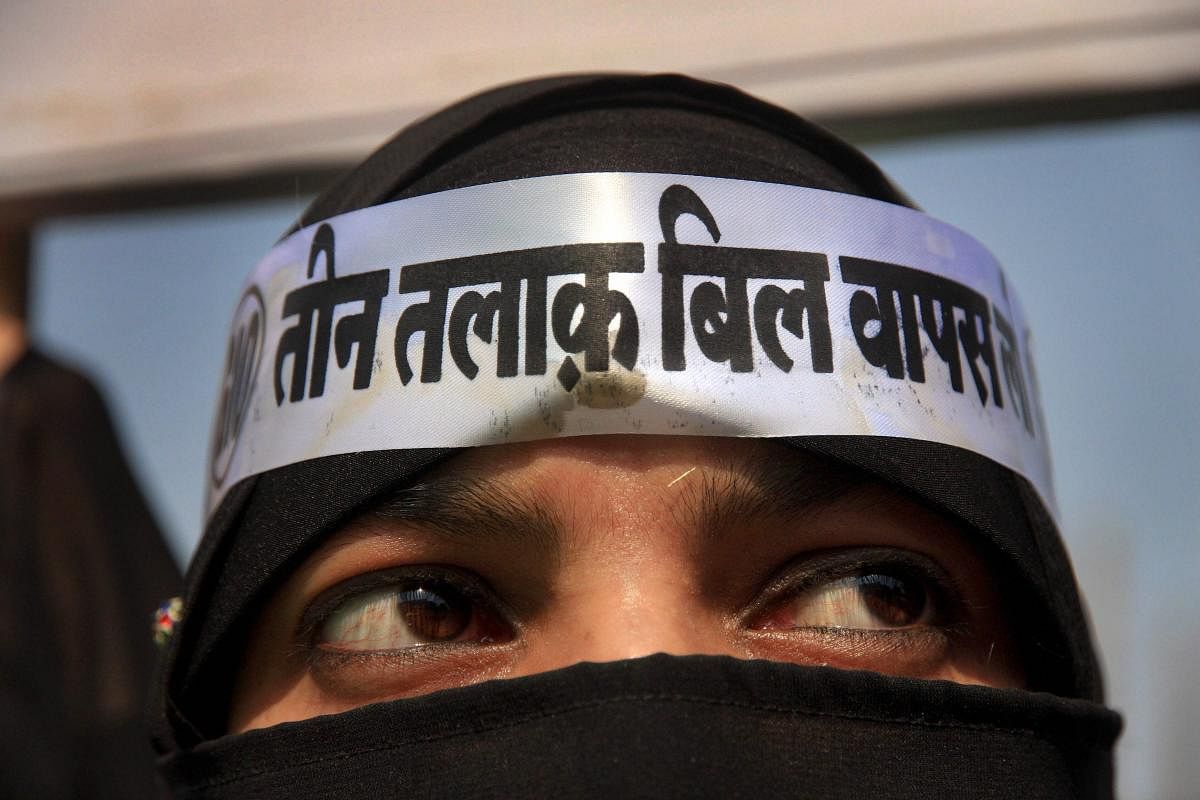
A Kerala-based organisation of Sunni Muslim scholars on Friday approached the Supreme Court challenging the constitutional validity of the law-making pronouncement of 'Triple Talaq' a punishable offence with a three-year jail term for the husband.
It said the law with penal legislation, specific to a class of persons based on religious identity, was causative of grave public mischief, which, if unchecked, may lead to polarization and disharmony in society.
The petition was filed a day after President gave assent to the Muslim Women (Protection of Rights on Marriage) Act, 2019, passed by Parliament on July 31.
'Samastha Kerala Jamiathul', a religious organisation of the Sunni Muslim scholars and clerics with its general secretary, Alikutty Musliyar contended there is no reasonableness or constitutional logic for making the procedural infirmity in effecting divorce a punishable offence for members of the Muslim community.
"The intent behind the Act is not the abolition of Triple Talaq but the punishment of Muslim husbands. Section 4 imposes a maximum sentence of 3 years imprisonment when a Muslim husband pronounces Triple Talaq. The offence is cognizable and non-bailable as per Section 7," it pointed out.
The petitioner claimed some isolated instances of the practice have occurred despite the judgment of the Supreme Court in Shayara Bano case but that does not imply that a penal provision is required to be immediately enacted to prevent the practice.
"If the motive was to protect a Muslim wife in an unhappy marriage, no reasonable person can believe that the means to ensure it is by putting an errant husband in jail for 3 years and create a non-bailable offence for merely saying “Talaq Talaq Talaq”,' it said.
The petitioner-organisation said that there are statutorily prescribed procedure for divorce in other religions too and non-compliance of this procedure for divorce was not a punishable offence for members of other religions.
"There is no reasonableness or constitutional logic for making the procedural infirmity in effecting divorce a punishable offence for members of Muslim community alone and such legislation cannot withstand the test of Article 14," it said.
After the apex court's 2017 verdict, it said the abolition of Triple Talaq was not a surviving cause for legislative action. "Protection of wives cannot be achieved by incarceration of husbands," it asserted.
